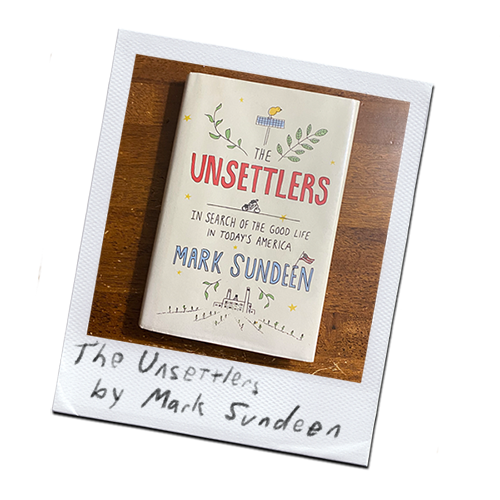First Disclaimer: The people in this story are real. The names used are real. The events are as accurate as possible from the perspective told. Recalling this story is like playing a decades-long game of telephone, where one child whispers a story into the ear of another and that child repeats the story to another child down the line. Only in this game of telephone, a child may wait many years or decades to pass the story along. During this time, the original story heard from the previous child has become foggy and the subsequent child may not remember it accurately. Or the child has grown older and the original story has taken on a different meaning or significance than when originally heard.
Continue readingAuthor: Eric
Who Owns the Female Body?
As we await the Supreme Court’s likely reversal of Roe v. Wade, I am reading “The Girls Who Went Away” by Ann Fessler. It is a heart-wrenching book about the “Baby Scoop Era” when millions of unwed women were forced to give up their babies for adoption during the years 1945 to 1973. Without access to birth control or abortion, these women were kicked out of school and shunned from their communities, often labeled neurotic and psychologically deficient. They were sent off to institutions until the babies reached full term at which time the women’s arms and legs were tied down while they gave birth. Once the baby was born, many women were not allowed to hold their baby or even to see their baby. After a short medical recovery, the mother would be coerced into signing the required adoption documents, if they ever signed documents at all. The women were told to never speak of the events for fear of rendering them social outcasts for the rest of their lives. Shamed first for having sex and shamed again for giving up their baby. Meanwhile, the fathers continued on with their lives, assured that a single indiscretion should not derail their academic and professional aspirations.
Continue readingMemorial Day?
It’s a beautiful Saturday morning and I’m on the way to enjoy the beach. I’m in my Volvo hatchback with the windows down sitting at an intersection in Escondido, California waiting for the light to turn green. The sun is shining, there’s a gentle sea breeze from the west, the birds are chirping. All of a sudden, an obnoxious horde of what appears to be a hundred motorcycles pops over the horizon. Just as my light turns green, two riders stop inches from my front bumper. One of them flashes a menacing smile and gives me a “thumbs up” seeming to ask me if I’m OK with waiting for them to pass. I most certainly am not “OK” with this! Who do these clowns think they are? As I try to gesture my disapproval, the two riders rev their loud V-Twin engines, clearly indicating that they really don’t care whether I approve or not. They’re going to shut down this road and ride through as a single group whether I like it or not. Rather than push the issue, I sit and wait for the horde to pass, thundering pipes, exhaust fumes, tattoos, patches, and leather.
Continue readingEmpathy – A Poem
Jenny and I talk a lot about values. Early on in our relationship I was pleased to find that one value amongst the most important to me consistently came up in our conversations; empathy. I find Jenny’s empathy abundant and continuous. I was not surprised to find that Jenny wrote a poem about empathy when she was about 5 years old.
Continue readingReflections on Sobriety
Since meeting Jenny over a year ago, we’ve had too many conversations to count about what makes life better. More truthful. More honest. More open. More giving. More fulfilling. A common thread in our conversations are the many inhibitors in life that can get in the way of finding life fulfillment. One of the most important keys to life fulfillment is to be the best human being that you can be. While that sounds so easy in a sense, life has a way of throwing an astonishing array of roadblocks and distractions in the way of accomplishing that. For Jenny and I, inhibitors have included abusive relationships and codependency. For myself, an inhibitor has been alcoholism.
Continue readingIf an Activist Lives Off the Grid, Does Anyone Hear About It?
Having just finished Mark Sundeen’s “The Unsettlers: In Search of the Good Life in Today’s America” and about to finish Dina Gilio-Whitaker’s “As Long As Grass Grows: The Indigenous Fight for Environmental Justice, From Colonization to Standing Rock”, I was drawn to the thought of how best to address the social issues addressed in the two books. There is one glaring thread between the two; overconsumption. While curbing consumption is central to Sundeen’s argument, it is difficult to imagine any meaningful long-term advancement in environmental justice without addressing the American consumption habits that drive it.
Continue readingGardening in Las Vegas?

I recently finished reading a wonderful book by Mark Sundeen titled, “The Unsettlers: In Search of the Good Life in Today’s America.” I expected to find a book romanticizing tiny houses or van life. Contrarily, it was really a book about responsible living and activism through sustainable consumption and local food production. I was particularly surprised to find a section on farming in Detroit. And if they can farm in Detroit, what’s to stop us from growing our own food in Las Vegas?